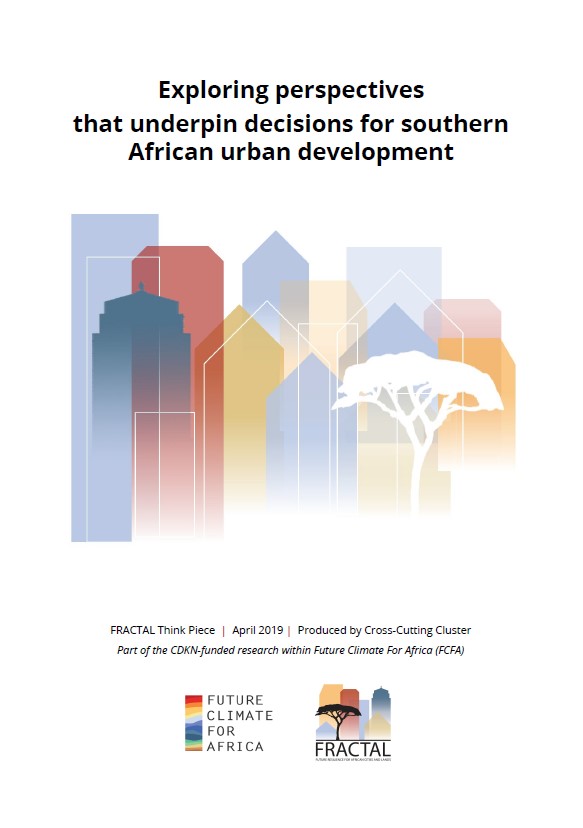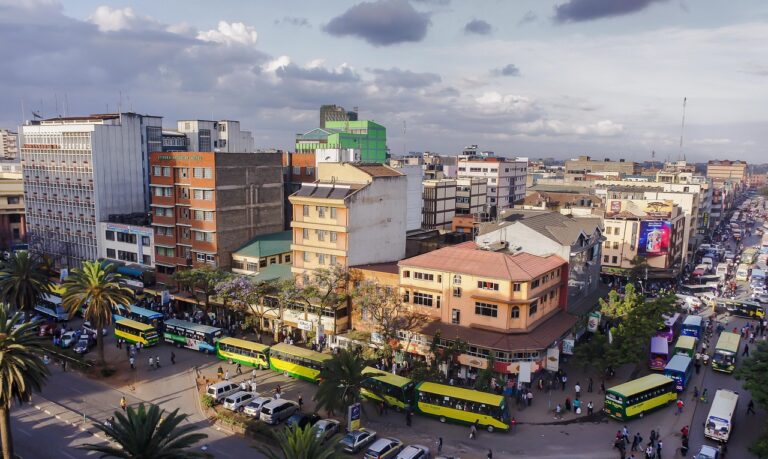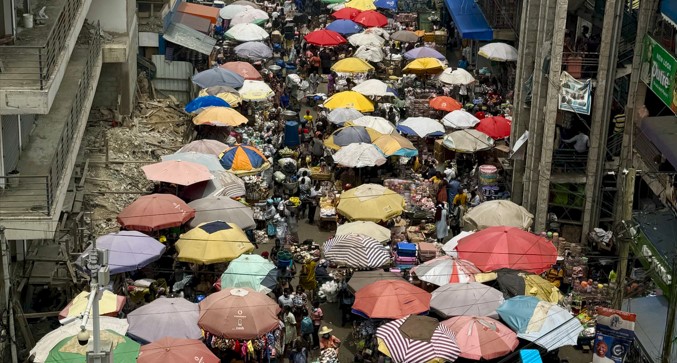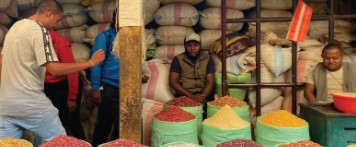Exploring perspectives that underpin decisions for southern African urban development




Download:
Related ICLEI Pathway(s)
About
Resource summary
The objective of the Future Resilience of African CiTies and Lands (FRACTAL) innovation fund programme was to increase the capacity of Early Career Researchers (ECRs) to advance the frontiers of research related to effective regional responses to climate variability and change. The design of the innovation fund project was catalysed by initial FRACTAL findings about the complexity of decision spaces in rapidly growing cities in southern Africa. In light of this complexity, Exploring perspectives that underpin decisions for southern African urban development aimed to unpack real case studies of decisions that have been made in southern African cities in order to surface contextual characteristics that shape urban development in the region, including values, perspectives, attitudes and beliefs of those involved.
The FRACTAL innovation project was designed so that research was strongly led by research institutions in southern Africa, outside of South Africa. Through this design, senior researchers at The Polytechnic, University of Malawi, Chinhoyi University of Technology and the University of Zambia mentored up to two ECRs from each city to undertake research. Work was carried out in three southern African cities taking part in FRACTAL, namely Blantyre, Harare and Lusaka. The research process in each city was guided by a loose structure. ‘Think tanks’ were organised in a remote location near these cities, during which the general concept of ‘development’ for each city was explored, alongside the particular case study decision.
Across the cases that were explored, similar themes emerged, including a strong economic development value at the core of the decisions, as well environmental and social wellbeing values. These were generally aligned with the organisational mandates of participants involved in the think tanks. Another common influential element across decisions was that of politics and politicians, despite the technical nature of the decisions that were explored. The project highlighted the challenges associated with undertaking values-related research in larger, mixed group discussions as values are usually assessed at an individual or organisational level. However, the research did contribute to important conversations between different groups of societal actors involved in development decisions, as well as between academia and these societal actors.
Evidence suggests that the innovative design of the project also inspired ECRs to continue applied research that will contribute to a southern perspective of related issues.
Related resources

TRACKING TRANSFORMATION: How African Cities Are Driving Global Climate Action Through Local Data

Resilient Municipal Market Fund (ReMark) Instrument Analysis



